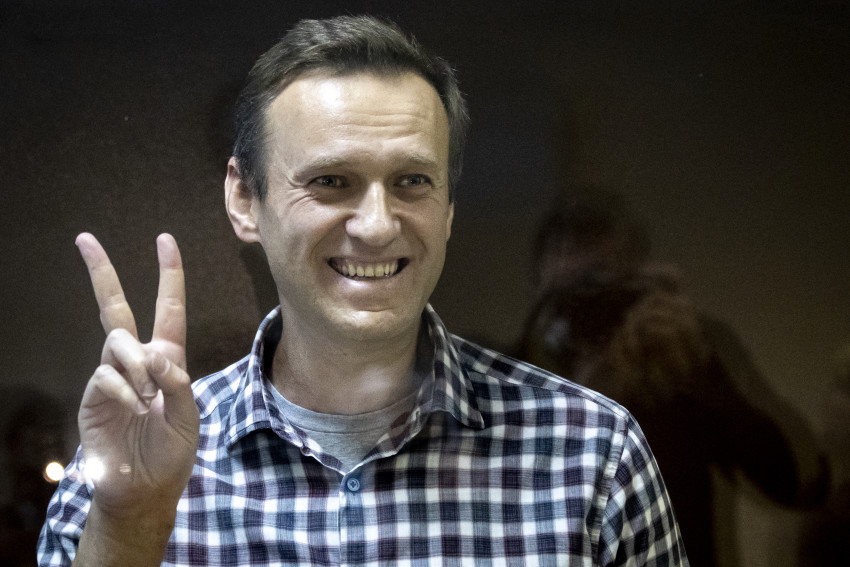U.S. sanctions Russian officials over the nerve-agent attack on Navalny
03 March, 2021

The Biden administration sanctioned seven mid-level and senior Russian officials on Tuesday, along with an increase of when compared to a dozen businesses and other entities, over a practically fatal nerve-agent attack on opposition leader Alexei Navalny and his subsequent jailing.
The measures, emphasizing the application of the Russian nerve agent as a banned chemical substance weapon, marked the Biden administration's first sanctions against associates of President Vladimir Putin. The Russian leader was a romantic and favorite of President Donald Trump possibly during covert Russian hacking and social media campaigns aimed at destabilizing the U.S.
The federal government officials included at least four whom Navalny's supporters had directly asked the West to penalize, saying these were most involved with targeting him and different dissidents and journalists. However, the U.S. list did not include any of Russia's most effective businesspeople and bankers, oligarchs whom Navalny has long explained the West would need to sanction to get the attention of Putin.
Tuesday's step “had not been meant to be considered a silver bullet or perhaps an end date to what has been a difficult relationship with Russia,” White House press secretary Jen Psaki said. “We expect the partnership to continue to become a challenge. We’re well prepared for that.”
The Biden administration also announced sanctions beneath the U.S. Chemical substance and Biological Weapons Control and Warfare Elimination Action for businesses and different enterprises, almost all of which it stated were involved in the development of biological and chemical substance agents.
The U.S. intelligence network concluded with huge confidence that Russia's Federal Security Service employed the Russian nerve agent Novichok on Navalny last August, a senior administration official stated. Russia says it had no role in any attack on the dissident.
Russian Foreign Ministry spokeswoman Maria Zakharova on Tuesday denounced the brand new U.S. sanctions within its “meddling inside our internal affairs.” “We aren’t going to tolerate that,” Zakharova explained in a statement, adding that “we will respond in kind.”
“Attempts to put pressure on Russia with sanctions or perhaps other equipment have failed during the past and can fail again,” Zakharova said.
The Biden administration has pledged to confront Putin in alleged attacks on Russian opposition figures and in alleged malign actions abroad, like the hacking of U.S. federal government agencies and U.S. businesses. Trump spoke admiringly of Putin and resisted criticism of Putin's federal government. That included dismissing U.S. intelligence findings that Russia got supported Trump in its covert campaign to hinder the 2016 presidential election.
The administration coordinated the sanctions with europe, which added to its sanctions Tuesday over the attack on Navalny.
The U.S. and European Union shared concerns about “Russia’s deepening authoritarianism,” Secretary of Talk about Antony Blinken said.
“The U.S. federal government has exercised its authorities to send a distinct signal that Russia’s make use of chemical weapons and abuse of human rights possess severe consequences,” Blinken said in a statement.
The individuals sanctioned by the U.S. included the top of Russia's Federal Security Service, the head of prisons, Kremlin and security figures, and Russia's prosecutor general.
The Biden administration had forecast for weeks actions against Russia. Aside from the Navalny sanctions, officials possess said the administration programs to react soon to the substantial Russian hack of federal government agencies and private corporations that laid bare vulnerabilities in the cyber source chain and exposed potentially sensitive secrets to elite Kremlin spies.
Navalny, 44, was sickened by simply the Russian nerve agent in an attack that the United States and others linked to Putin’s security offerings. After months of recuperation in Germany, Navalny flew house to Moscow in January and was arrested on arrival for an alleged parole violation.
His detention sparked street protests across Russia. Police arrested a large number of demonstrators. Authorities possess transferred the opposition leader to a penal colony to start serving a sentence, after what rights groupings said was a express trial.
Long a target in Russian government tries to turn off dissent, Navalny has repeatedly appealed to the West to start targeting the most powerful organization and financial oligarchs of his region, saying only then would definitely Russian leaders take international sanctions seriously.
Russia critic Bill Browder, a London-based investor, tweeted that he feared the brand new U.S. sanctions will be “much too little and not feel Putin’s billionaire cronies.”
Rep. Adam Schiff, a California Democrat and chair of the House Cleverness Committee, called the U.S. maneuver overdue.
Working with U.S. allies, “we should use a range of tools, incorporating sanctions, to meaningfully deter, repel, and punish Moscow’s transgressions,” Schiff explained in a statement.
The U.S. government has previously censured behavior by Russia that American officials noticed as having violated international norms.
In 2016, for example, the Obama administration taken care of immediately interference by the Kremlin in the presidential election by expelling dozens of Russian diplomats who officials said were actually spies and by shuttering two Russian compounds in Maryland and New York.
Trump's administration also took a small number of actions adverse to Moscow, including through the closure of Russian consulates on the West Coast and the suspension of a good nuclear arms treaty.
Source: japantoday.com
